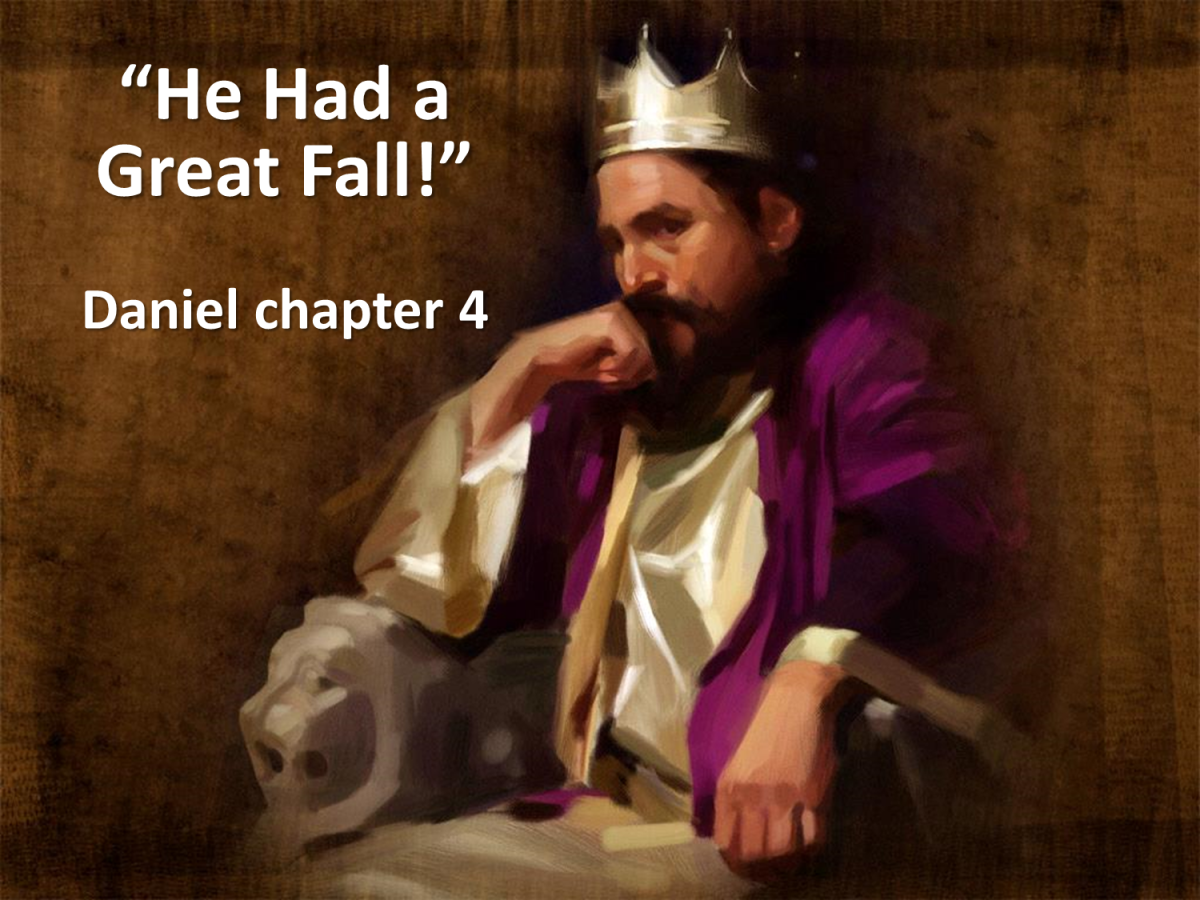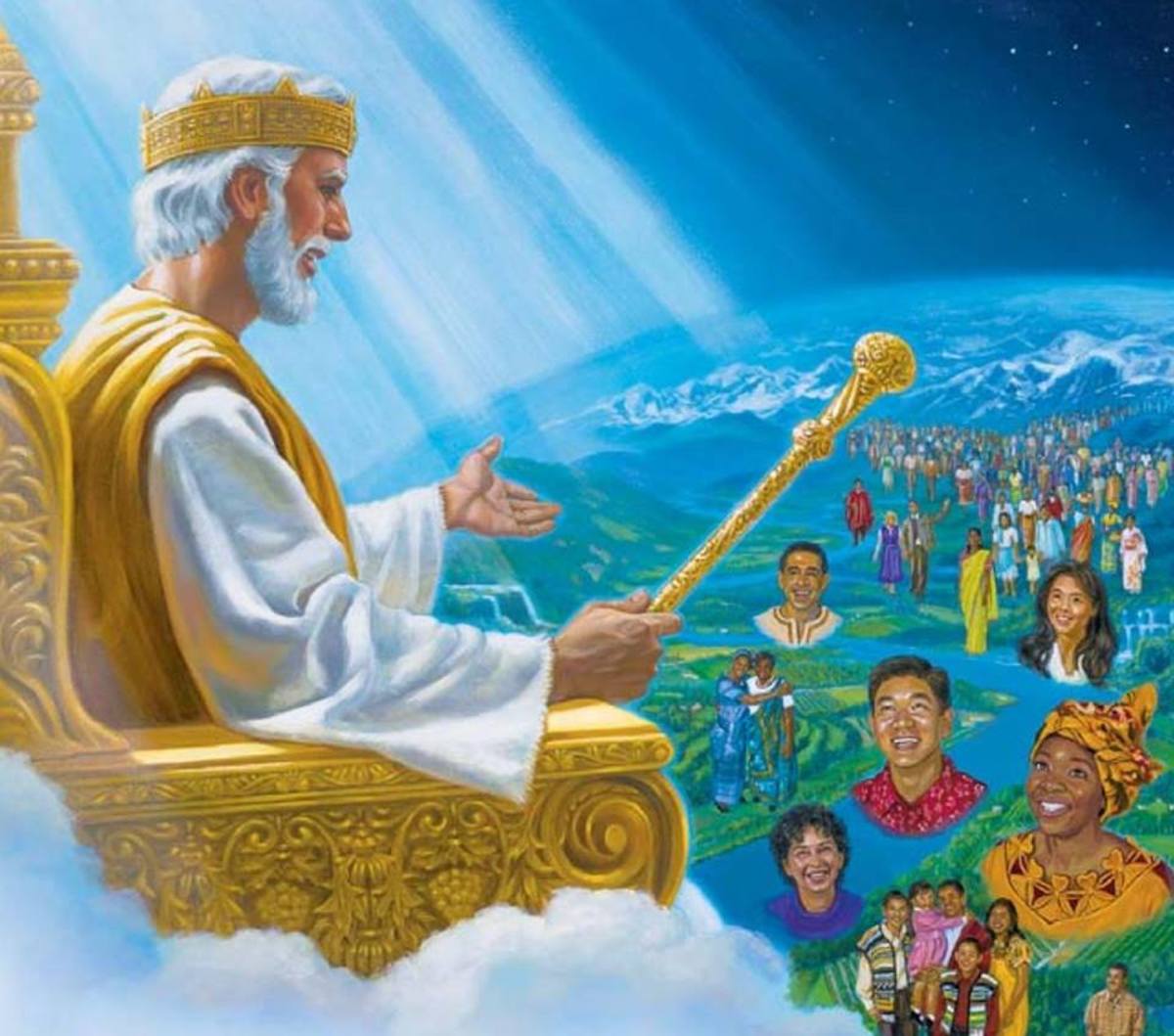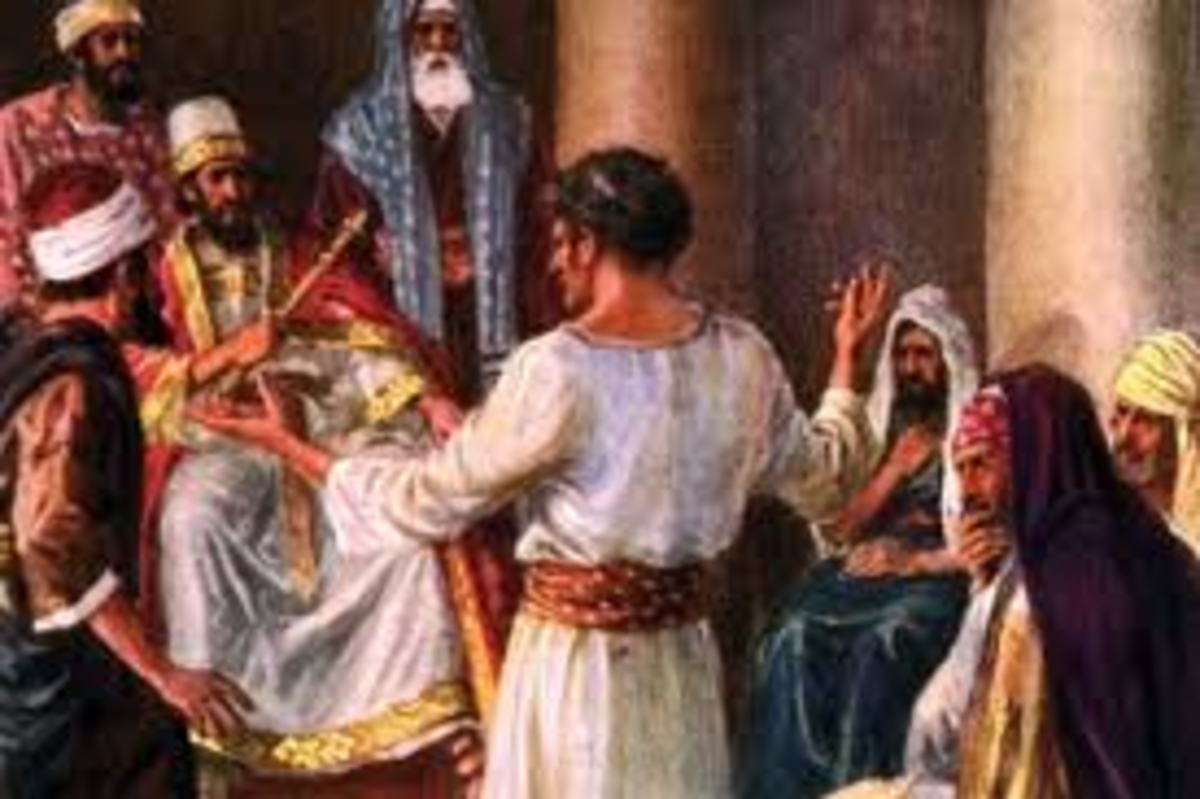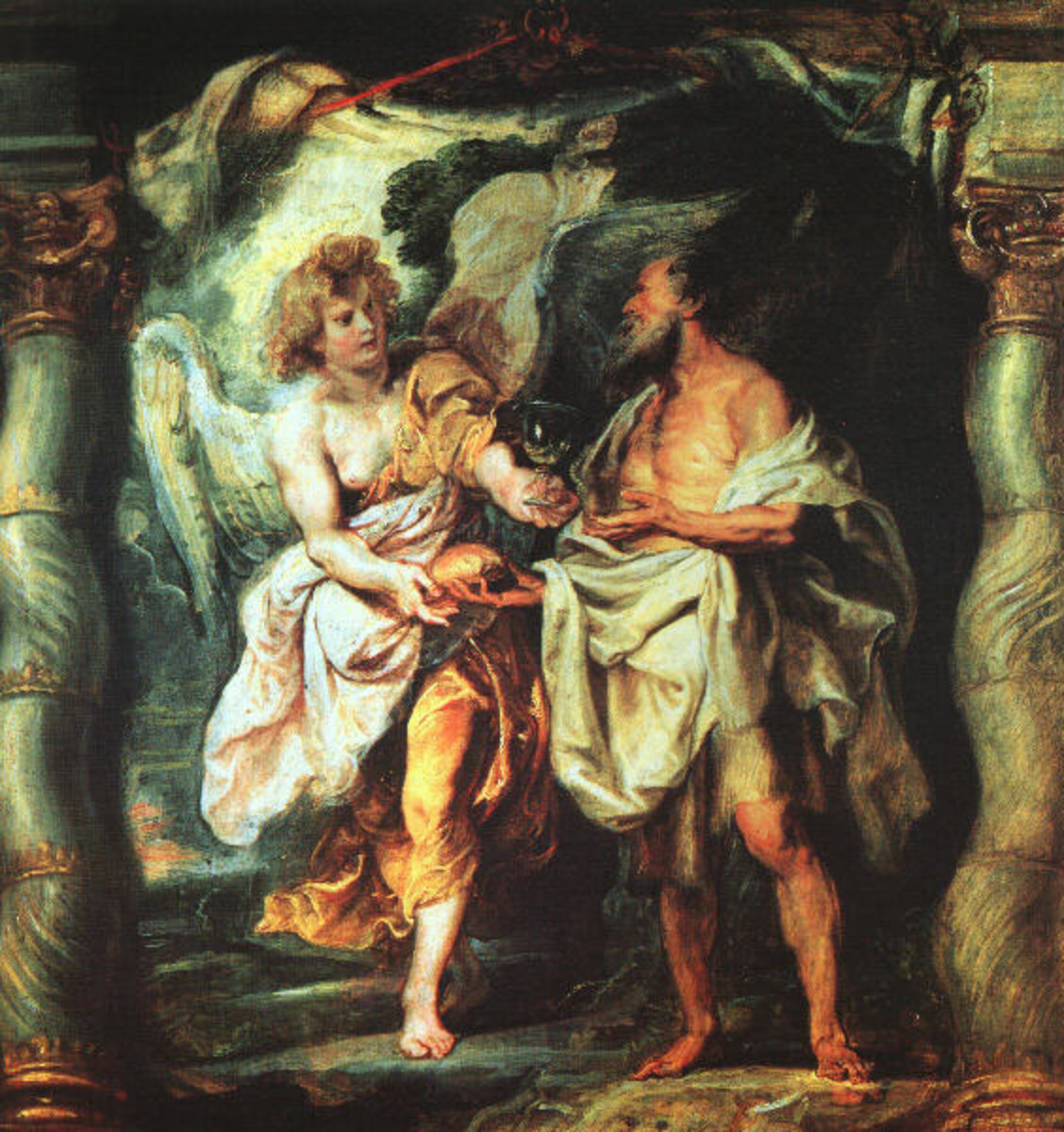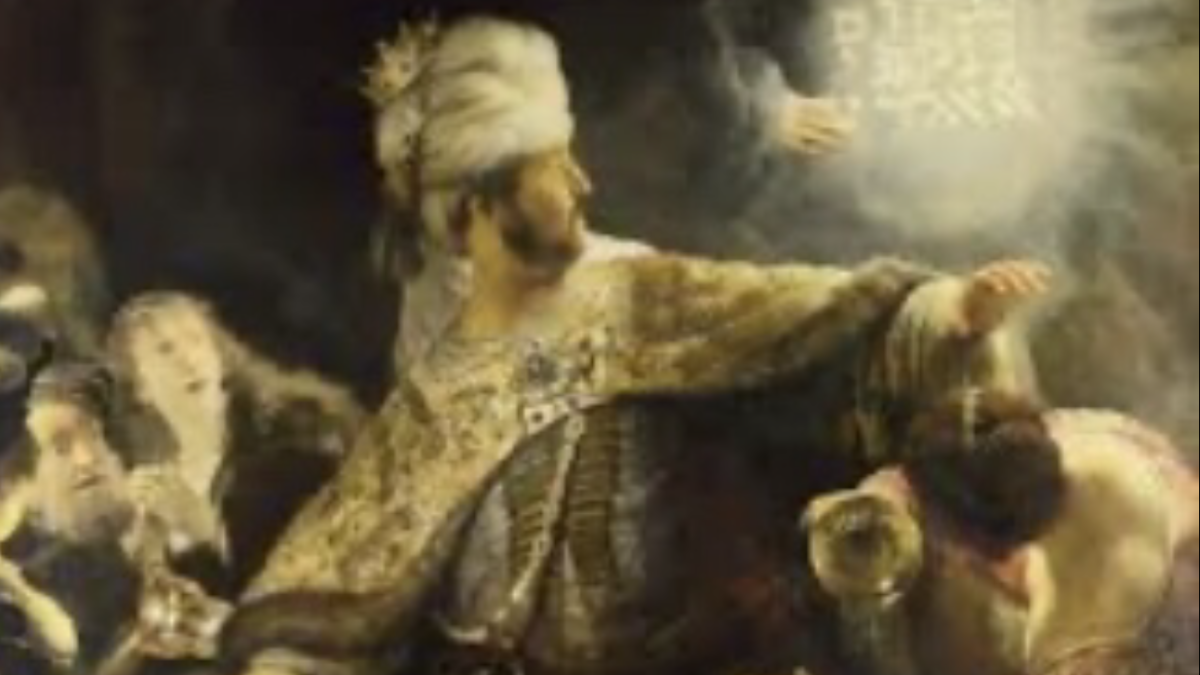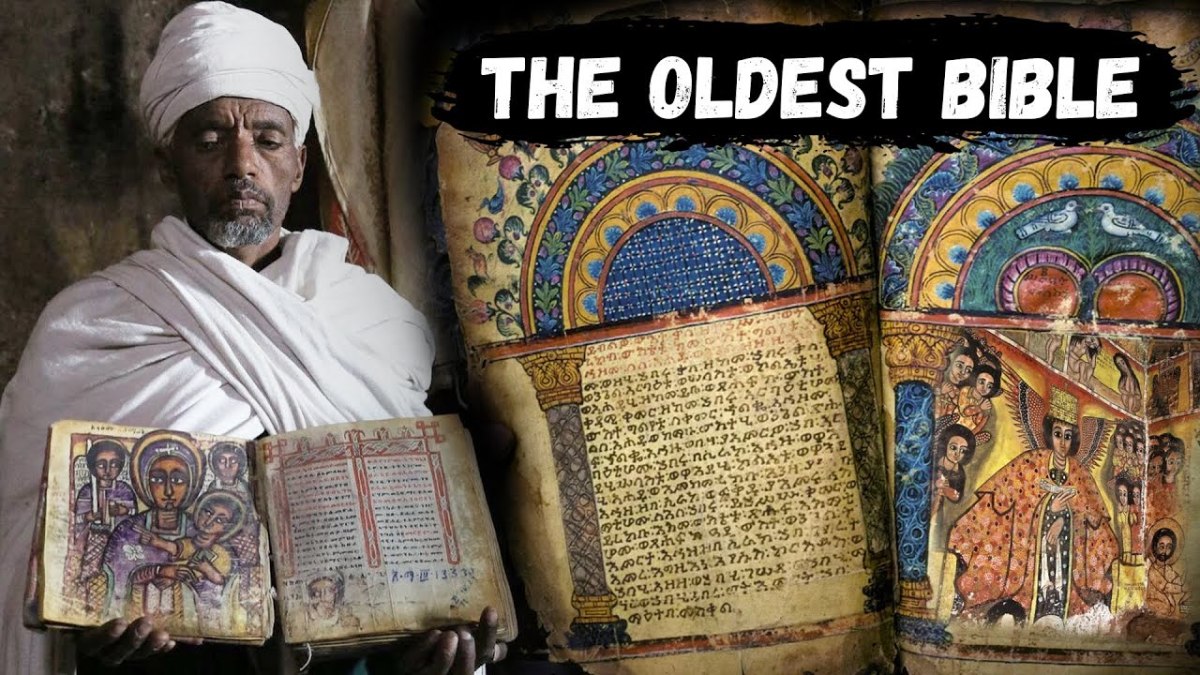Bible: What Does 2 Kings 22-25 Teach Us About the Law, Josiah, and Nebuchadnezzar?
The High Priest Hilkiah
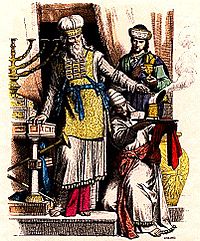
John MacArthur
Josiah's Reforms
After recording Josiah's preliminaries (age of accession, length of reign, mother's name, and spiritual/moral status) [vv. 1-2], the historian recounts a momentous event that occurred eighteen years into the king's reign: Hilkiah the high priest's finding of the Book of the Law in the temple (v. 8).
Josiah had sent Shaphan the scribe to Hilkiah to help him count money donated for the temple's upkeep and repair: a reform King Joash began early in his career (vv. 3-7; cf. 2 Kings 12:1-15).
The high priest excitedly shares his discovery with his scribe friend.
Shaphan, convinced of the scroll's genuineness, reports to Josiah not only that he had completed his assigned task, but more importantly, that Hilkiah had made a historic discovery (vv. 8-10).
As Josiah reads the scroll, God's written word convicts the king about Judah's peril (for Josiah knew that the fathers had disobeyed this Book of books, and that the present generation stood under the wrath of God).
Consequently, he seeks guidance from various scribes and servants regarding what he should do (vv. 11-13).
These men, in turn, seek out the prophetess Huldah, who confirms to them by revelation that Yahweh would surely judge Judah for its idolatry (vv. 14-17).
Josiah humbles himself when he hears what God planned to do against the land.
Therefore the LORD promises him that he himself would not see this calamity, but would rest with his fathers before that time (vv. 18-20).
The Book of Deuteronomy
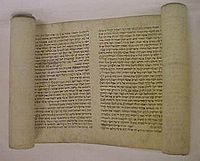
Location of Burning
view quiz statistics2 Kings 23
Josiah follows through with his reforms, gathering all the leaders and the people to the temple to hear the Book of Deuteronomy (vv. 1-2).
Having read the Law, the king himself covenants before the people to keep it with all his heart; his audience agrees to obey the LORD's word, too (v. 3).
As Judah's reformer par excellence, Josiah commands first that his priests burn every item of idolatrous worship found in the temple (v. 4).
False priests (whom other kings of Judah had hired to sacrifice to every conceivable object in the heavens) then receive their "pink slip" (v. 5).
The Brook Kidron becomes the site of the burning of the goddess image; in addition, Josiah orders the destruction of booths used for ritual prostitution in the temple (vv. 6-7).
Next, the king goes to work on the high places throughout Judah, defiling them and removing their priests (who, incidentally, do not reform their ways) [vv. 8-9].
Tophet, the site of child sacrifice (v. 10), the chariots of horses dedicated to the sun (v. 11), the altars of Ahaz and Manasseh (v. 12), the high places which Solomon had built for various pagan deities (v. 13), and sacred pillars (v. 14)—all these abominations Josiah destroys.
Not yet finished with his task, the reformer-king breaks down and incinerates both Jeroboam's altar and high place in Bethel.
Then he burns the bones of those buried near the site, thus defiling the altar (vv. 15-16; 1 Kings 13:2).
However, the remains of the man of God (who spoke the 1 Kings 13 prophecy) and those of the Samaritan prophet (whose bones also lie there) Josiah leaves alone (vv. 17-18).
Shrines throughout Samaria receive the same treatment as those in Bethel (v. 19), and their priests lose their lives (v. 20).
Victor Over Josiah
view quiz statisticsWith wholehearted devotion Josiah commands a nationwide observance of the Passover; it becomes the greatest celebration Israel had had in several hundred years (vv. 21-22).
In Jerusalem he cleans "both house and home" of family idols and the community of fortune tellers.
Josiah obeyed the law to the utmost: a grace which he accomplished more successfully than any other king of Judah (vv. 23-25).
Still, the nation needed to pay the price for Manasseh's sin; Yahweh promises to judge Judah and Jerusalem in due time (vv. 26-27).
The author concludes his account of Josiah's reign by reporting his death at the hand of Pharaoh Necho at Megiddo and his burial in Jerusalem (vv. 28-30a).
His son Jehoahaz reigns only a short while; Necho imprisons him, places a heavy tribute on Jerusalem/Judah, and makes Eliakim (Jehoiakim) king in Josiah's place (vv. 30b-34).
Jehoiakim becomes the puppet-king of Judah, exacting tribute from the people to pay Pharaoh (v. 35). He reigns eleven evil years (vv. 36-37).
Nebuchadnezzar II
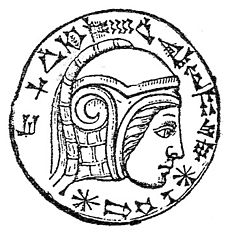
Replacement King
view quiz statistics2 Kings 24
A very important figure in near Eastern history, Nebuchadnezzar king of Babylon, now comes on the biblical scene, forcing Jehoiakim to be his vassal.
The king of Judah finally rebels against him in his fourth year (v. 1).
Yahweh sends numerous bands of enemies against Judah to remove the people from His presence, for God refuses to pardon Manasseh's idolatry and murder (vv. 2-4).
After completing his account of Jehoiakim's reign, the author mentions the accession of Jehoiachin before alluding to the defeat of the king of Egypt at the hand of Nebuchadnezzar (vv. 5-7).
Jehoiachin also lasts only a short time on the throne; his rule is unrighteous-- as one might expect (vv. 8-9).
Babylon lays siege to Jerusalem during his reign, and Nebuchadnezzar takes him, his relatives, and his associates into captivity (vv. 10-12).
Not only does this king of Babylon take Jerusalem's treasure to his country, but thousands of the city's inhabitants as well (vv. 13-14).
The historian merely records the approximate numbers of useful people which Nebuchadnezzar imprisons, for he leaves the poor behind (vv. 15-16).
Mattaniah (whom the king of Babylon renames Zedekiah) becomes king in Jehoiachin's place, and reigns eleven unrighteous years (vv. 17-19).
God's anger finally casts Judah out of the land; only after many years does Zedekiah rebel against Babylon (v. 20).
Jerusalem
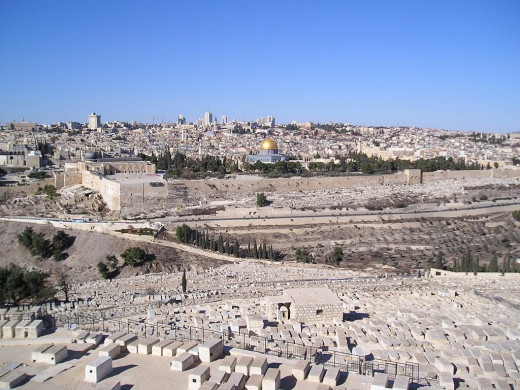
Governor of Judah
view quiz statistics2 Kings 25
Nebuchadnezzar begins his siege of Jerusalem on a specific date, and continues until famine rages in the city (vv. 1-3).
At last, his troops break through the wall, but not before Judah's warriors escape under cover of darkness (v. 4).
Zedekiah, however, fails to evade capture, being apprehended near Jericho (v. 5; cf. Ezekiel 12).
The king of Babylon not only forces him to watch his sons' massacre, but also plucks out his eyes and takes him to his land in chains (vv. 6-7).
On another specific date ten years later (cf. vv. 1, 8), Nebuzaradan the captain of the guard burns the temple and many houses in Jerusalem, and breaks down the wall around the city (vv. 8-10).
He also takes more people captive, including defectors, but leaves many poor to farm the land (vv. 11-12).
The Babylonian army then confiscates bronze in immeasurable quantities—pillars, carts, the Sea, priestly utensils—as well as silver and gold (vv. 13-17).
Nebuzaradan arrests certain priests, military officers, and royal associates, and the king puts them to death in Riblah (vv. 18-21).
Gedaliah becomes the appointed governor over those left in Judah (v. 22).
Military men gather themselves to this new official, and he encourages them to settle down in Babylon and serve the king (vv. 23-24).
Ishmael, one of the captains of the army, murders him and those with him at Mizpah (v. 25), and flees with the rest of the people to Egypt away from the Chaldeans (v. 26).
Concluding his account of the kings, the historian records the kindly act of Evil-Merodach king of Babylon toward Jehoiachin, releasing him from prison after nearly thirty years (v. 27; cf. 24:12).
Jehoiachin becomes this Babylonian king's friend, receiving a seat of honor and daily provisions (vv. 28-30).
SUMMARY QUESTIONS
1. What is the proof that a man is a prophet of God?
2. Does Elisha become ashamed because he permits Hazael to plant disinformation in Ben-Hadad's mind, or is he ashamed of Israel whom God will judge through Hazael?
3. What are the components of the historian's "formula" for recording the kings?
4. Why do you suppose that some otherwise godly kings allowed the people to sacrifice in illegal places?
5. How does God make a witness to Himself in the land after Assyria takes over?
6. Apart from a depraved heart, what may account for the sons of godly kings to apostatize?
7. What advantage, if any, do people who worship Yahweh and other gods have over the normal heathen?
8. What concerns did Hezekiah have when he prayed in chapter nineteen?
9. What principle did Gehazi fail to appreciate?
10. Who becomes governor over those left in Judah? What happens to him?
11. Name three godly kings of Judah, and identify some of their good work.
© 2013 glynch1


